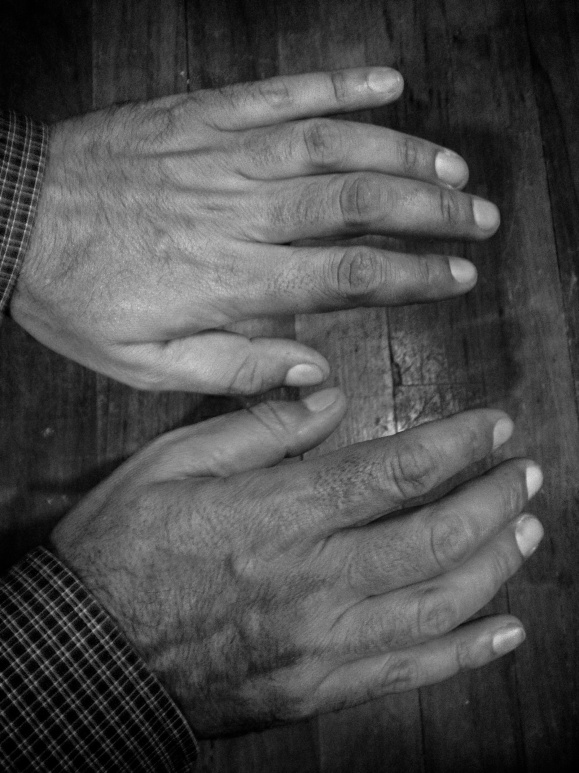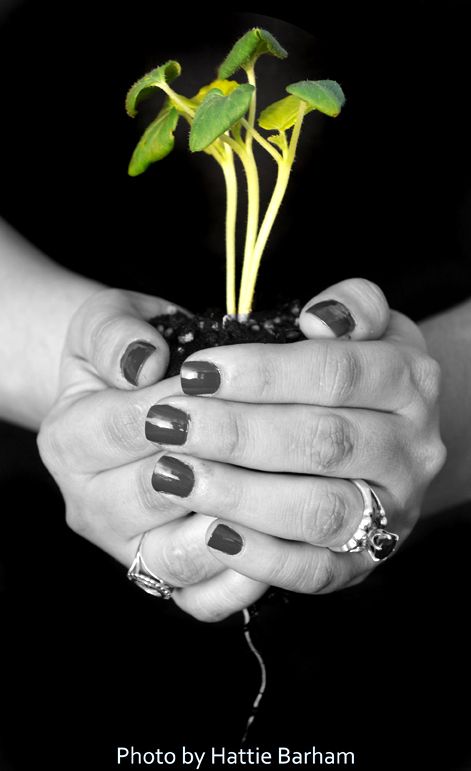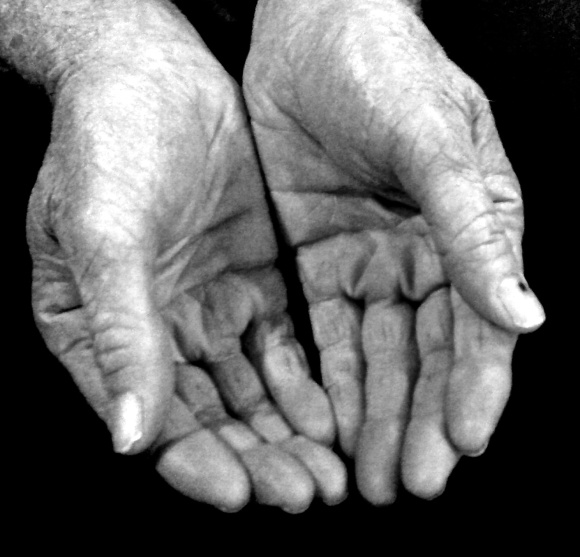Today, handsofafarmer would like to honor another group of agricultural advocates in our community. National 4-H week is October 7-13, so today, we honor county extension agents; specifically in Randall, County, Texas! As an agricultural science teacher, I have heard horror stories from “experienced” ag teachers about their work with agents. The agents have all heard the same stories about ag teachers. The Texas FFA and Texas 4-H (Team AgEd) are working hard to change that perception…and the county agents in Randall county are leading the way! Two of the greatest people to work with, two of the most caring individuals when it comes to kids, and parents, and two people who truly care about agriculture and telling the true story of American agriculture. They have made my transition to becoming a new ag teacher in Randall County amazing and have helped in many situations!
Today, we present the hands of Kim Peters and J.D. Ragland
Kim Peters, age: 25
Involvement in Agriculture: My involvement in agriculture now began many years ago. The four generations preceding mine in my family on all sides were agriculturists involved in the cotton and commercial cattle industries. I myself grew up on the Yellow House Ranch, a commercial cow/calf operation that was once headquarters of the southern division of the XIT, where my father was the foreman. My brother and I did not spend our summers at the pool or the mall; they were spent helping our dad. Whether that was horseback gathering cows, fixing fence, or repairing work trucks, we were with him. As a kid, that’s hard to appreciate, especially when your peers aren’t raised in the same environment; enter, 4-H. 4-H was where I truly felt I had a niche in the world. I was involved in projects ranging from, but not limited to, boer goats, public speaking, commercial cattle, and food and nutrition. I went on to study agriculture education and natural resources management at Texas Tech University, and completed two degrees there. Shortly after, I began my career as a 4-H & Youth Development Extension Agent for the Texas A&M AgriLife Extension Service in Randall County. So, I would say my current involvement in agriculture would be cultivating kids. I assist the 4-H members in Randall county as they complete their projects, and while they feel pride and accomplishment for what they’re doing in that moment, I feel pride knowing what kind of citizens they’ll become.
Most Difficult Moment in Agriculture: Like most people involved in any aspect of agriculture, drought is one of the most difficult periods to endure. For my family, the drought of 2011 was particularly devastating. One day during grad school, my mom called in a panic saying a fire was rapidly spreading across the ranch. Because we face everything as a family, I raced the hour home to find countless BLM, Texas Forest Service, and local firefighters doing their best to head it off. Dad was on the maintainer pulling fire guards in an attempt to save homes and livestock stationed at the headquarters. Because of their swift action, the damage could have been much worse. However, after that, my father developed respiratory problems due to smoke inhalation and passed away suddenly a few months later. Because the rains obviously weren’t coming for a while, we sold the herd he had spent years building. His employment at the Yellow House began in his early 20’s and lasted his entire life. He lived for that land and knew it better than anyone else; losing him was definitely my most difficult moment in agriculture. He was and is the driving force behind my 4-H career and my passion for agriculture and natural resources. For that I miss him all the more, but am eternally grateful.
Most Joyous Moment in Agriculture: My most joyous moment in agriculture has lasted nearly an entire year. That’s how long I have been in Randall County. To me, it’s a joyous moment when 4-H members celebrate what they have done, win or no. Whether it was a first year member celebrating their third place slot in the county show, or senior aged members winning a national speaking contest; seeing their pride in what they’ve accomplished gives me joy. 4-H isn’t about winning. It’s about learning from failures so you’re better able to prepare for the next round. That makes winning all the more special. Seeing these kids learn about the world around them is fascinating. While a member’s projects may not even focus in agriculture, I believe the neatest thing about 4-H and FFA is leaving those programs with an understanding and appreciation for agriculture and natural resources and with the knowledge that the world all but literally revolves around those two things.
J. D. Ragland, age: 48
Involvement in Agriculture: I have been involved in agriculture for my entire life. For 26 years now, I have been a county agent and have served Castro, Floyd, and Randall Counties as an agriculture and natural resources extension agent. Growing up, we farmed cotton and wheat and ran a commercial cow/calf operation. I worked side by side with my family during every event from planting to building fence, and they were very instrumental in developing my work ethic. I also became heavily involved with 4-H and FFA where my projects focused around cattle, swine, sheep, and leadership. As a result of this experience, I was able to serve as chapter and area president through FFA, and in 1982 I was elected State 4-H Council first vice president. Along with my wife Angela, Marketing Director at the Tri-State Fair, and my son, Brady, graduate student in animal reproduction and Assistant Livestock Judging coach at Texas Tech, I own and operate Ragland Herefords. We run 60 registered and commercial Hereford cows, concentrating in club calf production and sell approximately 15 calves annually. Watching Brady grow up through 4-H was rewarding, especially the livestock aspect of the program. With my guidance, he won several titles at shows like the State Fair of Texas and Ft. Worth and in 2008, he won high individual at not only the Texas 4-H Livestock Judging contest, but the National 4-H Livestock Judging Contest. I am very passionate about not only agriculture, but youth agricultural education as well.
Most Difficult Moment in Agriculture: Personally, I would have to say the drought has been most difficult for me to deal with. Because of the lack of moisture, I was forced to sell part of my Hereford herd with bloodlines that I had been developing for 30 years. That was devastating because those animals are irreplaceable. Professionally, seeing what the producers in my county have faced with drought has been tough as well. Another aspect of my career that has been difficult has been leaving one county for another. In this job, you build strong relationships and bonds with producers and families that are not easily broken.
Most Joyous Moment in Agriculture: I am very proud of the quality of Hereford cattle I’ve been able to produce over the years and the success exhibitors have had with them at shows. In my career, I was able to reach a milestone with a group of 4-H members. While in Floyd County, I coached the 2008 Floyd County 4-H Livestock Judging Team to the state champion title. They worked relentlessly at reaching that goal, and to this day I am extremely proud of what they accomplished. Every year, I am given the opportunity to teach young people about agriculture and that is an extremely rewarding thing. Most importantly, I find joy in serving the communities and counties in which I’ve lived and working to make a positive difference in their lives.











